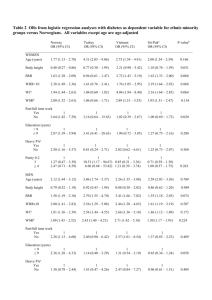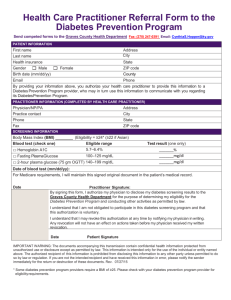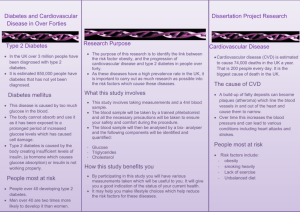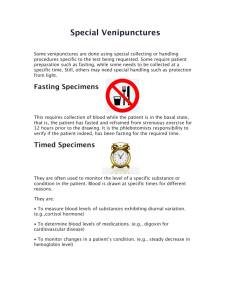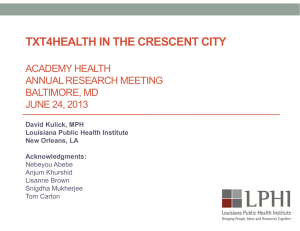premature treatment effects of metabolic syndrome as the predictor
advertisement
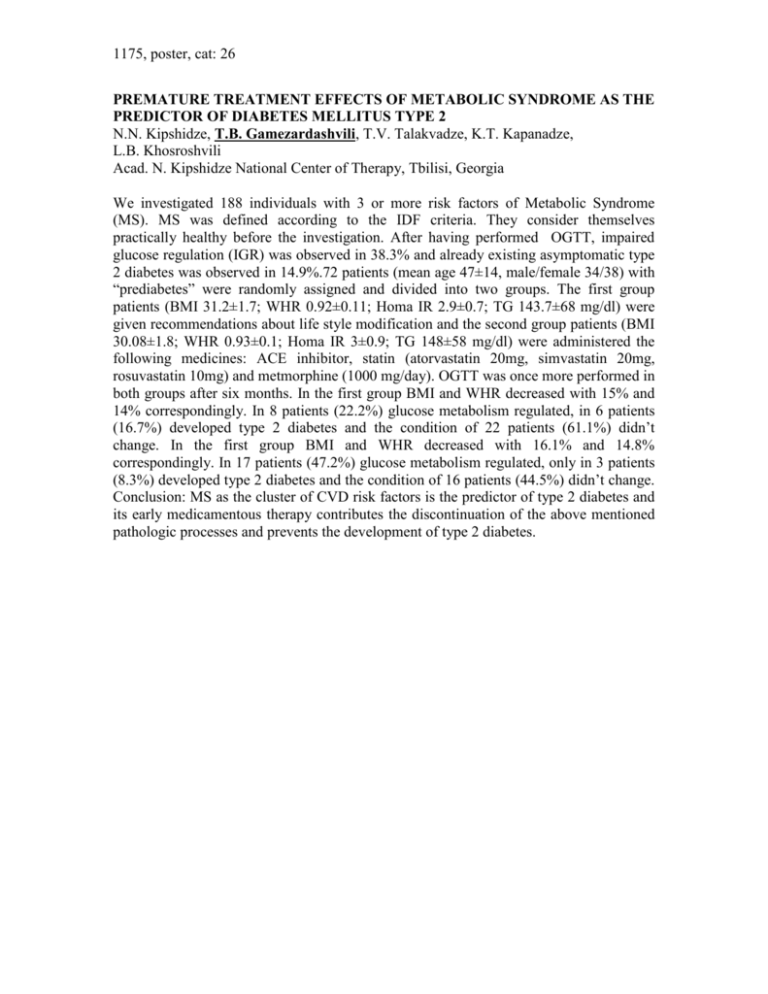
1175, poster, cat: 26 PREMATURE TREATMENT EFFECTS OF METABOLIC SYNDROME AS THE PREDICTOR OF DIABETES MELLITUS TYPE 2 N.N. Kipshidze, T.B. Gamezardashvili, T.V. Talakvadze, K.T. Kapanadze, L.B. Khosroshvili Acad. N. Kipshidze National Center of Therapy, Tbilisi, Georgia We investigated 188 individuals with 3 or more risk factors of Metabolic Syndrome (MS). MS was defined according to the IDF criteria. They consider themselves practically healthy before the investigation. After having performed OGTT, impaired glucose regulation (IGR) was observed in 38.3% and already existing asymptomatic type 2 diabetes was observed in 14.9%.72 patients (mean age 47±14, male/female 34/38) with “prediabetes” were randomly assigned and divided into two groups. The first group patients (BMI 31.2±1.7; WHR 0.92±0.11; Homa IR 2.9±0.7; TG 143.7±68 mg/dl) were given recommendations about life style modification and the second group patients (BMI 30.08±1.8; WHR 0.93±0.1; Homa IR 3±0.9; TG 148±58 mg/dl) were administered the following medicines: ACE inhibitor, statin (atorvastatin 20mg, simvastatin 20mg, rosuvastatin 10mg) and metmorphine (1000 mg/day). OGTT was once more performed in both groups after six months. In the first group BMI and WHR decreased with 15% and 14% correspondingly. In 8 patients (22.2%) glucose metabolism regulated, in 6 patients (16.7%) developed type 2 diabetes and the condition of 22 patients (61.1%) didn’t change. In the first group BMI and WHR decreased with 16.1% and 14.8% correspondingly. In 17 patients (47.2%) glucose metabolism regulated, only in 3 patients (8.3%) developed type 2 diabetes and the condition of 16 patients (44.5%) didn’t change. Conclusion: MS as the cluster of CVD risk factors is the predictor of type 2 diabetes and its early medicamentous therapy contributes the discontinuation of the above mentioned pathologic processes and prevents the development of type 2 diabetes.
